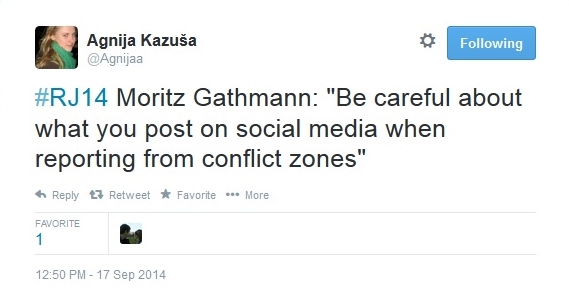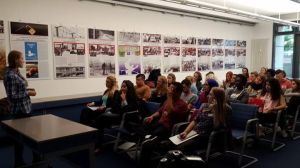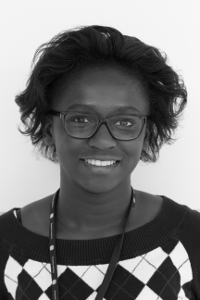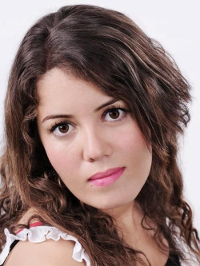Qatar has quite a reputation in mistreating its migrant workers, especially since the constructions for the World Cup 2022 began. But how does this system actually work?
By Dolores Picot
In the last couple of years a lot has been written and documented about the condition of migrant workers in the Gulf Cooperation Council (GCC) region that consists of six members: Bahrain, Kuwait, Oman, Qatar, Saudi Arabia, and the United Arab Emirates. These reports have highlighted the inhumane working and living conditions that some of the workers have been subjected to. With the help of the international organizations as well as several non-governmental organizations, there have been considerable improvements during the last few years.
Although there is plenty of room for improvement in all the member countries, in the last two years the focus – in particular the media focus – has been on Qatar. A country rich in natural gas resources and with one of the highest GDP per capita in the world, deemed by its counterparts in the GCC and by other states in the region, as one of the most liberal monarchies of the Gulf. That perception is helped by its media channel, Al Jazeera, as well as by Qatars openness to receive criticism from outside.
Due to a small population of around two million inhabitants, Qatar is heavily dependent on foreign manpower. Ninety-four percent of the total labor force is made of non-Qataris, making it the country with the highest ratio of migrants to citizens worldwide. Qatars rapid expansion as well as the exploitation of its natural resources mainly natural gas and oil, have been the constant pull factors for migrant workers originating mainly from the Asian continent. In recent years, another pull factor that has attracted a significant amount of workers is the construction of the stadiums for the FIFA World Cup that will take place in Qatar in 2022. In order to be able to build the required infrastructure to hold the World Cup the country will need to employ more than 1.5 million workers in addition to the existing workers currently employed in the construction sector.
The ‘Kafala’ system
Unfortunately, foreign migrant workers residing in Qatar are victims of a system that leaves them open to exploitation and abuse. One of the main issues that they face is related to the implementation of the ‘Kafala’ or sponsorship system that binds foreign workers to a local sponsor who can be either an individual or a local company. Once they arrived in Qatar, workers are tied to their sponsors for the duration of their stay and they cannot change their job or exit the country without their sponsor’s consent. In order to enforce this, sponsors often resort to the infamous practice of passport confiscation. The second most cited abuse of workers after the non-payment of their salaries. This practice permits abuse and allows workers to remain “trapped” in the country with very few resources at their disposal should they face any difficulties at work which is usually the case. In addition, migrant workers who frequently arrive in Qatar, indebted due to the high placement fees they had to pay to recruiters in their home countries, are struggling with employers who withhold their wages, as a way of making sure the workers are not going to quit. In some cases, employers keep up to three month’s wages. Furthermore, workers have to face long working hours and unsafe working and housing conditions, which usually include working outside during the hottest times of the day and living in cramped dormitories with little privacy.
Despite the criticism the country has received for the implications of this system of sponsorship, few things have changed since December 2010. Back then Qatar won the bid for the FIFA World Cup and the world’s media intensified its focus on the event and everything related to it, including migrant workers’ rights. Later in 2014, Qatar promised to reform the ‘kafala’ system and introduce new labour law legislation as a response to the increased pressure from the international community over serious rights abuses in the construction sector.
Death ratio of one Nepalese worker every two days
The reform plans include an increment in the fines for passport confiscation for employers; the right for workers to change employers at the end of their contract without the need to gain approval from their existing employer; a modification to the exit visa system whereby an automated system will issue an exit visa after a 72-hour grace period prior to departure and, last but not least, the introduction of a pay reform that will require the payment of wages to be done electronically in order “to ensure transparency, monitoring and timely payment.”1 Additionally, the government announced the introduction in February 2014 of the Worker’s Charter: A 50-page document describing areas in which the Qatari government plans to act in order to improve the situation for migrant workers for the 2022 FIFA World Cup.
Despite the introduction of the charter and the government promising reforms since early 2014, it has failed to act upon them. As a result migrants have continued to struggle during the year with terrible outcomes such as a death ratio of one Nepalese worker every two days during 2014.2
In order to tackle some of the criticism the country has been receiving, earlier this year the government announced its plans to introduce the pay reform for migrant workers3 to ensure workers would be paid on time. Employers will have six months to implement the reforms, however no time frame has been set for the reforms to be introduced, which is a major drawback as the delay in the implementation allows for the continuation of violation of the rights of the workers by the employers.
What role play private sector and sending countries?
One should not forget the role of two important actors in this whole process: the private sector and the migrant sending countries. In 2011, the Qatar 2022 Supreme Committee4 was created to monitor the infrastructure projects related to the World Cup and make sure all obligations under the hosting agreement are being fulfilled, including, but not limited to the respect for migrant workers’ rights. Since then, several cases have been reported of migrant workers suffering human rights violations, and while there are big multinational companies involved in the process, most of them work with local subcontractors, who, as the Special Rapporteur noted in his visit to Qatar, are the ones that commit the most serious abuses of migrants. However, the creation of the Committee alone is not enough to protect, respect and remedy human rights violations that migrant workers are being victims of; the State of Qatar and the FIFA, who has agreed “to add labour related criteria to the bidding process of future FIFA World Cups,”5 together with the subcontractors as well as all the other relevant actors who are engaged in construction activities for the World Cup should ensure they are working in compliance with the UN Guiding Principles on Business and Human Rights.
In the past, sending countries had played a marginal role in the protection of their nationals abroad. However, during the last decade or so, due to the growing pressure migrant-sending countries were receiving from the international community, NGO’s and their own embassies’ personnel, they began to adopt policies to improve the situation of their migrant workforce in the GCC countries. Despite the existence of bilateral agreements between sending and receiving countries the receiving country does not always fulfill these agreements. Moreover, some sending countries are unwilling to enter in confrontations with the receiving government. They are afraid that Qatar will simply turn to other countries as a source of labour and they will remain without the economic benefits of migration they collect through remittances. It is also important to stress that by avoiding to make demands on receiving countries, sending countries show that the difficulties migrant workers have to go through in the destination country, are not a top priority in their international affairs agenda.
Human trafficking
Another major issue that Qatar faces, that it is directly linked to its faulty sponsorship system and that should be the focus of the reforms, is human trafficking. The US Department of State has downgraded Qatar to a Tier 2 watchlist in its Trafficking in Persons (TiP) Report6 last year after the country failed to fully comply with the minimum standards for the elimination of trafficking and it showed unwillingness to address the issue. Meanwhile, the country remains a destination country for women and men subjected to forced labor, helped by the practices of unscrupulous sponsors.
Five years after winning the bid to host the World Cup, and more than two years since the systemic abuse of migrant workers was put in the spotlight throughout the world, Qatar has recognised the need to reform its labour laws and bring them to conformity with international legal standards that will protect migrant workers from serious human rights abuses. But so far, the government not only remains oblivious to any significant structural reforms but also on occasions fails to enforce the existing laws and regulations.
Qatar’s government has not yet taken the necessary steps that are required to afford migrant workers adequate protection against human rights abuses, including forced labour and trafficking. It remains to be seen what steps the government will take to tackle these issues in the near future. The gravity of the situation calls for the government to take immediate action to avoid having a World Cup built entirely through exploitation and forced labour and with a tremendous human cost as a result.
1 http://www.moi.gov.qa/site/english/news/2014/05/14/32204.html
2 http://www.theguardian.com/world/2014/dec/23/qatar-nepal-workers-world-cup-2022-death-toll-doha
4 Nowadays know as the Supreme Committee for Delivery and Legacy, Emiri Decree No. 3, 2014
5 Statement from JérômeValcke on labour rights in Qatar6
6 http://www.state.gov/j/tip/rls/tiprpt/countries/2014/226802.html
About the author: Dolores Picot holds a M.A. in Human Rights and Democratisation from the European Inter-University Center for Human Rights and Democratization. Currently she is a legal and advocacy volunteer at HOME Singapore, an Anti human-trafficking organization that works for the well-being, justice and empowerment of migrant workers in Singapore.
























































